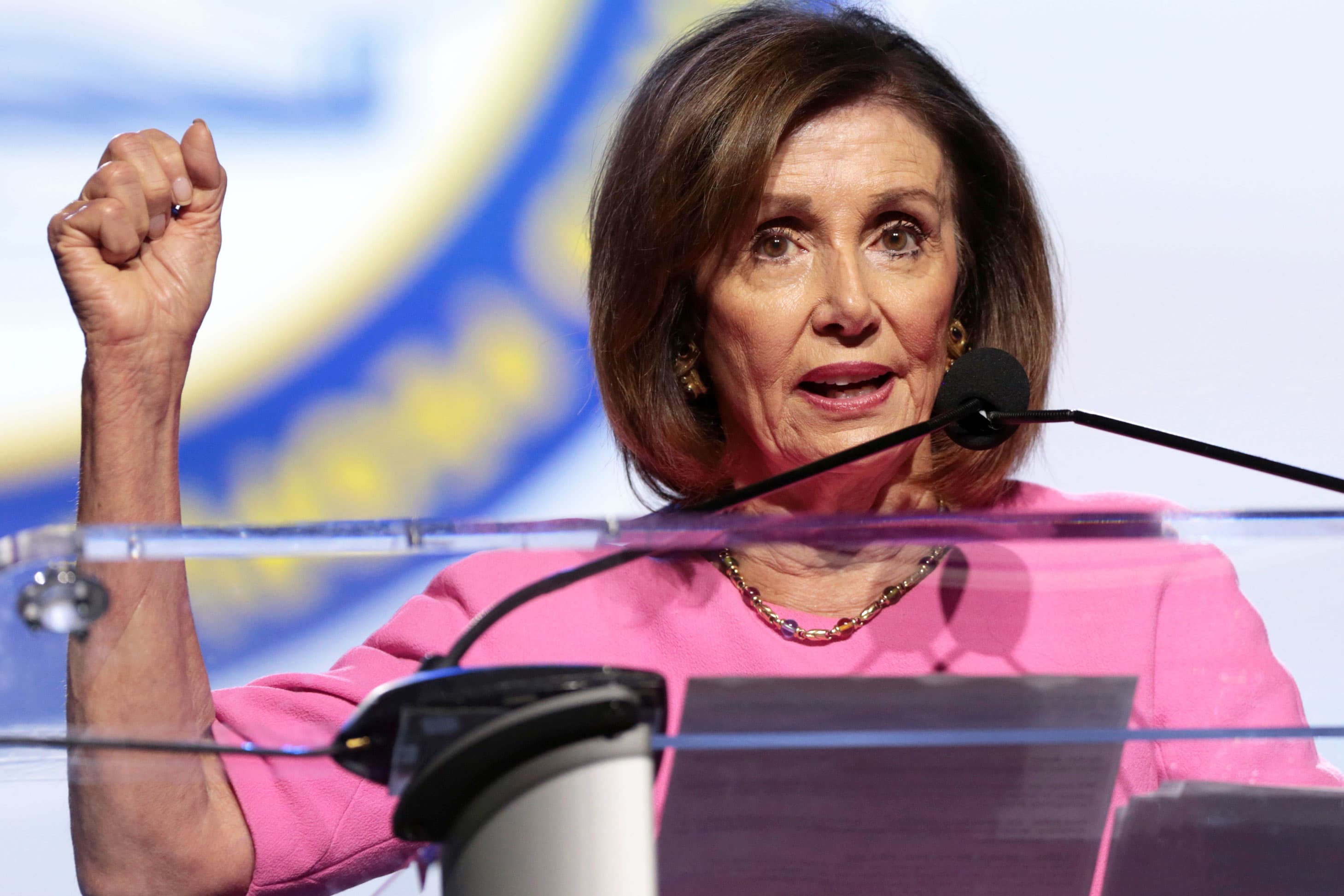House of Representatives Speaker Nancy Pelosi delivers remarks at the opening plenary session of the National Association of the Advancement for Colored People's annual convention in Detroit, July 22, 2019.
Rebecca Cook | Reuters
Having failed to repeal Obamacare, President Donald Trump and his party now plan to surrender their own achievement: budget caps Republicans once forced on President Barack Obama.
Neither their retreat nor the customary conservative protests surprise anyone. Republicans have backed away from those caps repeatedly in recent years because, when translated from numbers on a page to actual reductions in government services, they repel decision-makers of both parties.
But this latest concession tells the same story that Obamacare's resilience does: of a 21st century GOP publicly-wedded to ideological commitments it lacks the political support to fulfill. Democratic leaders keep prevailing in budget negotiations by defending things that Americans want.
Recall what produced those budget caps eight years ago. The deep recession that accompanied Wall Street's financial crisis had sent the federal deficit soaring to $1-trillion; the 2009 economic stimulus Obama and Congressional Democrats enacted to stem the downturn pushed deficits even higher.
Soon the Tea Party Republicans who won a House majority in 2010 demanded deep spending cuts. Taking an economically-vital increase in the debt limit hostage, they pressed their demands long enough to trigger the first-ever downgrade in the U.S. government's credit rating.
GOP stands down
Yet within two years, Republicans had joined Democrats in concluding that the 10-year Budget Control Act squeezed too much. The House dramatized the point in the fall of 2013 by failing to pass a transportation funding bill – because it lacked enough spending to attract Republican votes.
"The House has declined to proceed on the implementation of the very budget it adopted just three months ago," senior GOP Rep. Hal Rogers of Kentucky complained then. "Unrealistic and ill-conceived discretionary cuts must be brought to an end."
Late that year, the Republican House agreed with Obama and the Democratic Senate to reverse many of those cuts. When that deal expired, with Republicans controlling the Senate as well, they struck another deal with Obama to roll them back. Last year, with Republicans commanding the White House and both chambers of Congress, they did it again.
Now the Republican White House, Republican Senate and Democratic House have reached a new compromise to boost spending by $320-billion. Equally divided between defense programs Republicans prize and domestic priorities Democratic champion, it puts the budget back near the 2010 levels that existed before this eight-year exercise began.
The usual suspects complain that the deal fails to achieve their pledges to shrink government. On Twitter, conservative GOP Rep. Mark Walker depicted it as a piece of flaming wreckage.
Indeed, the deal does not shrink government. But considering that Republican as well as Democratic voters value the services it pays for, Walker might as well yell at the clouds.
Those chiefly concerned with shrinking federal deficits blast a new flood-tide of red ink. But they'll get nowhere so long as debate centers on cutting the narrow "discretionary" slice of the budget rather than on raising taxes and curbing the massive Social Security and Medicare benefit programs that run on auto-pilot.
Democrats value governing
In fact, their putative GOP champions threw the deficit-reduction engine into reverse and hit the gas by voting for Trump's 2017 tax cut. During his presidency, Republican leaders have made no attempt to pare back retiree benefits even while insisting the government must do so soon.
Some liberal Democrats grouse about the deal, too. They wish Pelosi obtained more concessions by wielding the threat of federal default more aggressively, as Republicans did during Obama's presidency.
If left-leaning Democratic lawmakers such as Alexandria Ocasio-Cortez and her "squad" had the clout and inclination to push party leaders around that Tea Party Republicans did in 2011, Pelosi would have. But they don't.
Contemporary Democrats value government, and governing, more than contemporary Republicans do. So Pelosi agreed to raise the debt ceiling through the end of Trump's term in exchange for money to support services ranging from national parks to scientific research to low-income housing, child care and environmental protection.
That this Republican White House went along demonstrates how Pelosi and Democrats held the upper hand. Trump's chief of staff is Mick Mulvaney, the self-styled "right-wing nutjob" who egged on the Obama-era budget and debt-limit crises.
But Republican presidents, if they want to win re-election, cannot hurt voters with service cuts or the economy with threats of government default any more than Democrats can. The arc of governance bends toward political reality, even if the GOP's stated philosophy points elsewhere.


